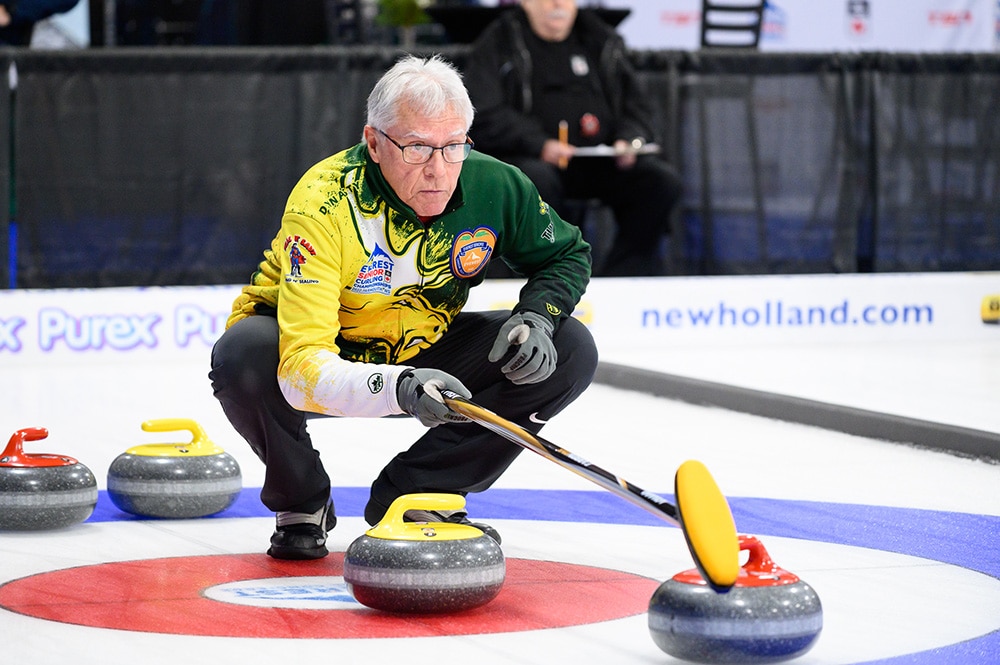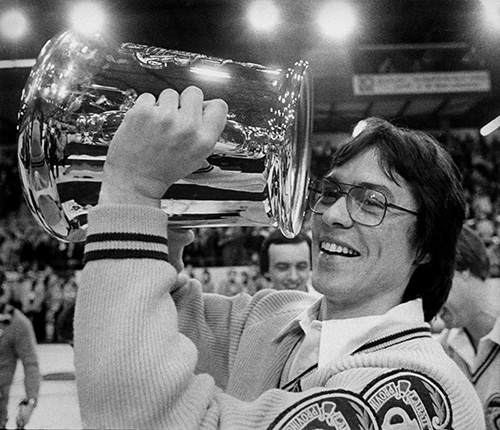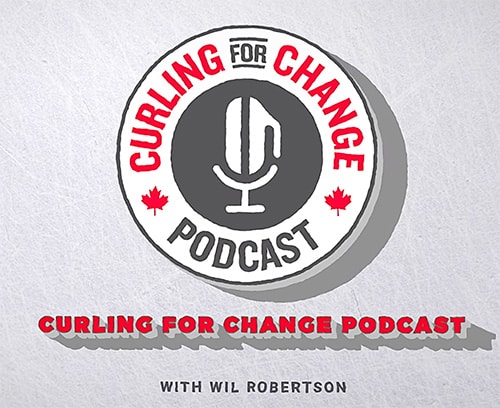Curling for Change Podcast: Al Hackner

The Curling for Change Podcast and Al Hackner discuss the realities of curling for Indigenous Peoples
By: Jillian Kent
Leading up to the curling season, Curling Canada has published the Curling for Change Podcast, hosted by Wil Robertson, winner of the 2022 Fran Todd All Heart Award and sponsored by the World Curling Federation.
Each podcast invited recognizable members of the curling community to openly discuss specific areas of diversity, equality and inclusion that were also personal to themselves. While there were questions and topics prepared to guide the discussion, Wil made it clear from the start that he wanted each guest to feel comfortable sharing their own stories.

“I just want to say that I am really grateful for everyone who took part. It took a lot of trust and leaps of faith for people to be as open and vulnerable as they were,” Wil said. He also highlighted how this is not something that is often seen in the realm of sport. Which, perhaps, gave the discussions more impact overall.
Although there were as many as 16 topics suggested at the onset of this venture, it was narrowed down to the handful of topics that became the current podcast series, which are now all released on Curling Canada+.
In the latest episode, Wil sat down with Kerri Einarson (Métis) and Kerry Galusha (Gwich’in) to discuss their own experiences as Indigenous curlers and ways that curling in Canada should evolve to create more space for Indigenous Peoples. This was one of the topics that Wil knew he wanted to tackle from the start, as Indigenous communities are underrepresented in not just curling but all sports across Canada.
Al Hackner (Ojibwa) has long been a leader within the curling community. Inducted into the Canadian Curling Hall of Fame as a Curler and as part of a Team, Al is a two-time Brier champion as well as a champion at the seniors and masters level. With a competitive career that spanned nearly 40 years, Al has garnered respect within the curling community and beyond. Although he was invited to participate in the Curling for Change Podcast, scheduling conflicts occurred.
Al admits to thinking of himself as “simply a curler first”; it wasn’t until later, as he got older and saw more of the impact of his role as a prominent Indigenous figure within curling that he began to realize the importance of being an “Indigenous curler” as well.
“There was a lot of pride,” Al remarked, when reflecting on how his journey influenced the feelings of Indigenous communities towards curling. “You know, it was like when Canadians saw Mike Weir win (The Masters in 2003) – that feeling of ‘one of us’ [has succeeded].”
Representation for Indigenous Peoples is important, as it is moments such as Hackner’s – seeing themselves somewhere succeeding and being welcomed – that signals there is space for them to participate and succeed as well. If you do not see yourself in a space, the default assumption is that it is not a space you’re welcomed in.
While Al is proud of his history on the public stage, and that pride it’s created for some in the Indigenous community, he is truly passionate about the Northern Ontario Native Mixed Bonspiel, which he has been a part of, either as a player or organizer, for 20 years. Although the bonspiel started off slow, it has seen a lot of success and growth over the years.

Lasting three days, the Northern Ontario Native Bonspiel is open to everyone of any skill level and brings together people from all the small, often isolated, communities across Northern Ontario for three days of fun and connection. It can, as Al pointed out, be incredibly difficult to step into a competitive setting in a sport that you have never played before. To ease that transition, the bonspiel has a range from beginners to those with some curling experience, and hosts clinics before starting to give instruction and pointers to anyone who may need it. Over the years, as well, they have adjusted the draw, minimizing the traditional “competitive” dynamic to foster one of community and support instead.
The Northern Ontario Native Mixed Bonspiel has had the most success when organizers created a format that includes every single team still playing on the final day of competition and ensuring that everyone gets a prize, something that is not always seen, even recreational curling.
By removing the concepts of ranking (elevating the top two or three teams from the remaining group), organizers have seen a positive response from all participants. Many who have some curling experience have shared excitement at still playing on the final day of competition, having never had that opportunity before. Regardless of where they place, everyone feels pride at having won something; they come away from the day feeling successful and having truly enjoyed their experience, rather than discouraged at not being “the best”.
It’s this joy and pride Al credits for the success of the bonspiel’s growth over the years. Participants not only return home to tell their friends and family how great a time they had, thus bringing more of them with them next year, but many have created lifelong friends with others from communities they wouldn’t necessarily have had contact with previously. Al made a point to mention the small community of Armstrong which has, in the past, brought nearly every member of their community to the spiel.
While Al is always happy to talk about Indigenous involvement in curling, he made a point to emphasize that these are conversations we need to continue having and actions we need to continue to make.
“Many feel that they aren’t included or welcomed; we need to keep repeating [those kind actions], keep saying it and showing that they are,” he said.
This is a sentiment echoed by the Curling for Change podcast. Each guest, through the course of the discussion, provided small, manageable actions that each listener can take on themselves. Discussions and creating awareness are great, however, it’s the action that is necessary to move anything forward. One of the best ways to grow is to jump in and go for it. As Wil said, these podcasts came from a thought he had in the shower. If he can do it, so can everyone else.
You can find all the podcasts, including the latest one with Kerri Einarson and Kerry Galusha on Curling Canda+, Youtube or wherever podcasts are available.




